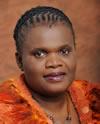9 February 2017
By Minister Faith Muthambi

The State of the Nation Address (SoNA) has become a key feature in our nation’s calendar. It is a rallying point for South Africans and a valuable source for those who wish to take the pulse of democratic South Africa.
The address has resonance across the country and beyond. It is a celebration of our nation with public participation through state ceremonial activities introduced by the first Parliament in 1994.
South Africans take part in this momentous occasion through a Junior Guard of Honour, a Civil Guard of Honour and Eminent Persons nominated by Provincial Speakers from all nine provinces.
Importantly, behind the regalia and red carpet showcase is an important constitutional imperative where the sitting head of state reports to parliament on the country’s progress and challenges.
The President, in essence, speaks to every South African as parliament follows a proportional representation model to reflect every constituency in the country. It allows the country’s diverse voices to be heard and their views reflected.
In line with the Constitution, the president will call a joint sitting of the houses of parliament, which is the National Assembly and the National Council of Provinces. The occasion brings together the legislature, the executive and judiciary as separate but interdependent components.
The Constitution is very specific about the separation of powers as it firmly entrenches and protects us as a democracy. This is a significant departure from our apartheid past where parliament’s powers were absolute in passing unjust laws that oppressed the majority of South Africans and where organs of state acted with impunity.
The separation of powers allows for the checks and balances in our democracy. It enables each branch of the state to scrutinise the acts of the other to prevent one from acting unilaterally.
The executive, under the leadership of the President, is charged with the day-to-day running of the country through the implementation of policy. In the Sona, the President takes the nation into his confidence on government’s plans and sets the tone on critical matters for the country.
The pronouncements become part of government’s Programme of Action, which is underpinned by the 2014 - 2019 Medium Term Strategic Framework (MTSF). It sets targets and indicators for the next five years and clearly identifies roles and responsibilities for the implementation of key actions.
Moreover, the 2014 – 2019 MTSF is the first five-year building block towards implementing Vision 2030 of the National Development Plan (NDP). It includes 14 outcomes which build on government’s work, learnings and experiences from previous administrations.
These outcomes include among others quality basic education, that all people in South Africa are and feel safe, a long and healthy life for all, decent employment through inclusive growth, sustainable human settlements and improved quality of household life and responsive, accountable, effective and efficient local government.
To carry out the SoNA commitments, the Department of Performance Monitoring and Evaluation aligns the strategic plans and annual plans of national and provincial departments. It also enables the systematic and evidence-based monitoring so that progress can continuously be tracked towards reaching our NDP objectives.
Parliament uses the contents of the address in its oversight and accountability of government departments and entities on promises made to South Africans. Through its work, it upholds the basic values and principles governing public administration, and oversees the implementation of our constitutional imperatives.
The President’s address is followed by robust debate in parliament to allow all constituencies an opportunity to express their opinion. These interactions are guided by parliamentary rules so that the integrity and sanctity of this esteemed institution is maintained.
In society, the Sona is preceded by intense discussions in the media, academic and research institutions that inform and shape public opinion as well as seek to influence policy.
For South Africans, the address empowers us as citizens to better take part in our democracy. It allows us to scrutinise the information presented and to identify where we can contribute to the country’s development.
To keep our democracy working requires all citizens to take a constructive interest in how the country is managed. We can do so by to tuning in at 7pm today to hear first-hand what is planned for our country.
Faith Muthambi is the Minister of Communications.

